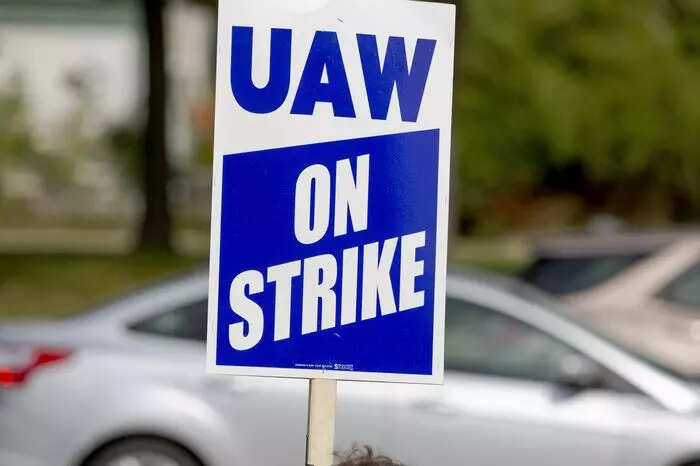
The United Auto Workers (UAW) union struck Chrysler-parent Stellantis‘s largest assembly plant on Monday, hitting the automaker’s profitable RAM 1500 pickup truck production in a major expansion of the more than month-old strike.
The UAW said another 6,800 workers at a Michigan truck plant are going on strike at Stellantis because the company has the “worst proposal on the table regarding wage progression, temporary worker pay and conversion to full-time, cost-of-living adjustments (COLA), and more.”
More than 40,000 union members working at Ford, General Motors and Stellantis are now on strike since the walkouts began on Sept. 15.
The union has waged an unusual campaign of simultaneous strikes against the Detroit Three automakers, demanding a 40% wage hike, including a 20% immediate increase, improvements in benefits, as well as covering EV battery plant workers under union agreements.
United Auto Workers President Shawn Fain on Friday warned of more walkouts at U.S. truck and SUV factories unless the Detroit Three automakers improved wage and benefit offers, insisting companies could afford more than the record packages on the table.
The UAW’s move against Sterling Heights is similar to its recent walkout from Ford’s Kentucky Truck assembly plant, its most profitable single operation globally.
On Oct. 16, Ford Chairman Bill Ford warned of the growing impact to the automaker and the U.S. economy from the strike.
The total economic losses from the UAW strike have reached USD 7.7 billion, according to the latest data from economic consultancy Anderson Economic Group, with the Detroit Three suffering losses of USD 3.45 billion.

